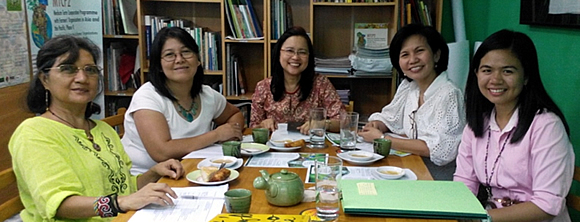Food Security and Food Safety

The goal of food security is a universally shared ideal within the Southeast Asian region and beyond, and is always identified as a key societal objective of agricultural development. In the definition of the Food and Agriculture Organization (FAO), food security "exists when all people, at all times, have physical and economic access to sufficient, safe and nutritious food to meet their dietary needs and food preferences for an active and healthy life." Thus, it comprises ensuring availability and accessibility of adequate and safe food to the entire population. It is also concerned with ensuring nutritious food, particularly to minimize incidence of deficiencies in key nutrients and minerals that leads to illness or poor health.
Threats to food security may be physical (lack of infrastructure to produce and distribute food at the right quantities and to the right places); natural (calamities and disasters that destroy food crops and curtail food supplies); political (misplaced priorities by political leaders that lead to inadequate food supplies, food embargos imposed by hostile nations); social/cultural (practices that lead to significant food losses and wastage, beliefs that limit the range of accessible food to the populace); and economic (high costs/prices that may be due to factors within or beyond control).
Approaches to food security may be undertaken at the local, national and regional levels, and hinges on appropriate governance mechanisms that lead to efficient, effective and timely provision of food to the populace. Resilience, whether in its social, economic or environmental dimensions, is the direct outcome of or is closely associated with food security. The equity ideal is fostered when food security measures do not unduly benefit some groups or put others at a disadvantage. For example, food subsidies need to be targeted to those in need. In the Philippine historical experience, there had been instances in the past when rice subsidies failed to discriminate between those who were truly in need and deserving and those who did not require food assistance. Finally, regional integration (through regional food security and food reserve schemes) could very well be the means to avoid inappropriate national policies that confuse food security goals with attaining food self-sufficiency. Such policies have often resulted in substantial market distortions and institutional inefficiencies that ultimately undermined food security itself.


 Download Conference Summary Report
Download Conference Summary Report Download Book of Abstracts
Download Book of Abstracts
 Download Conference Flyer
Download Conference Flyer


